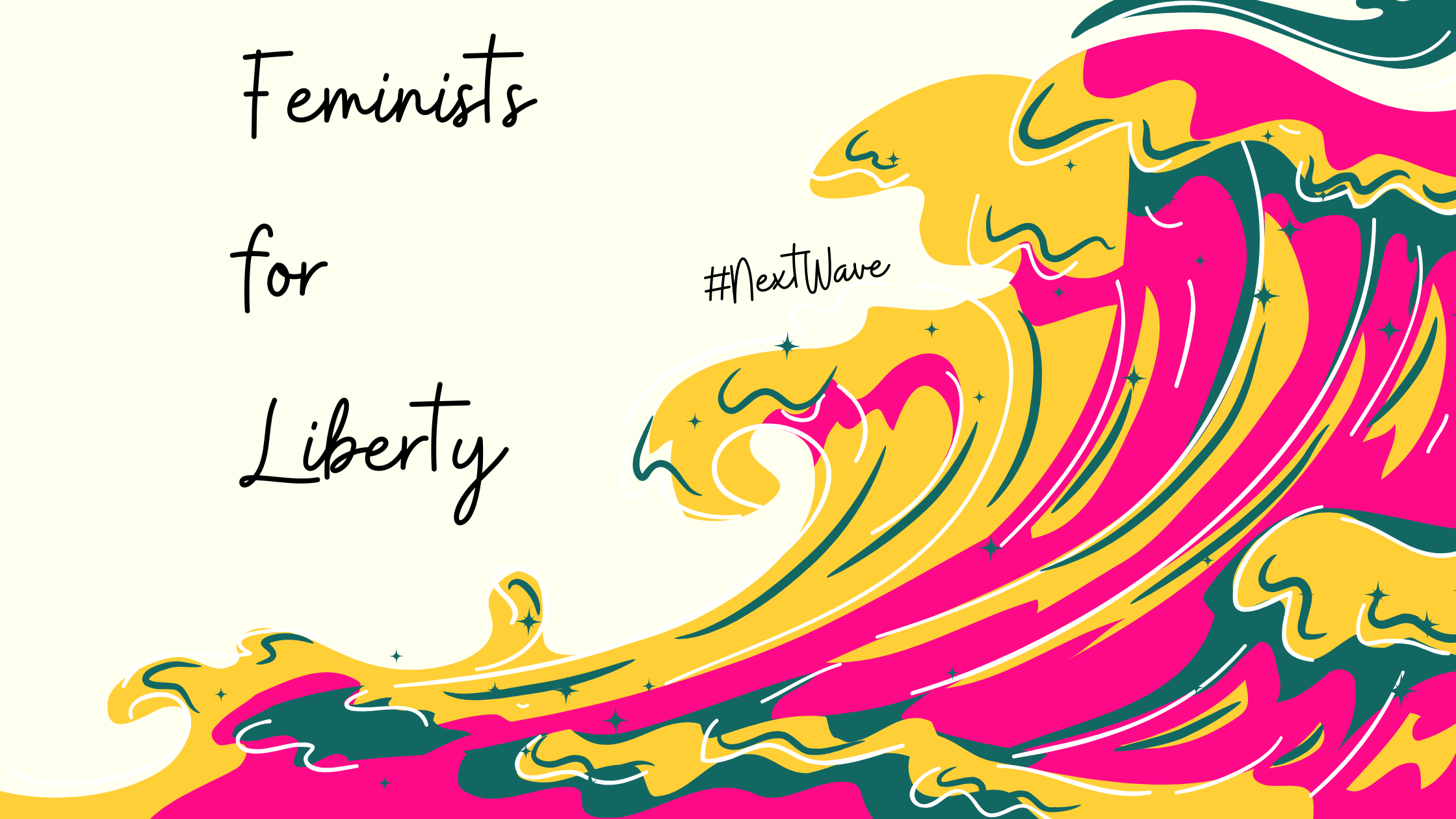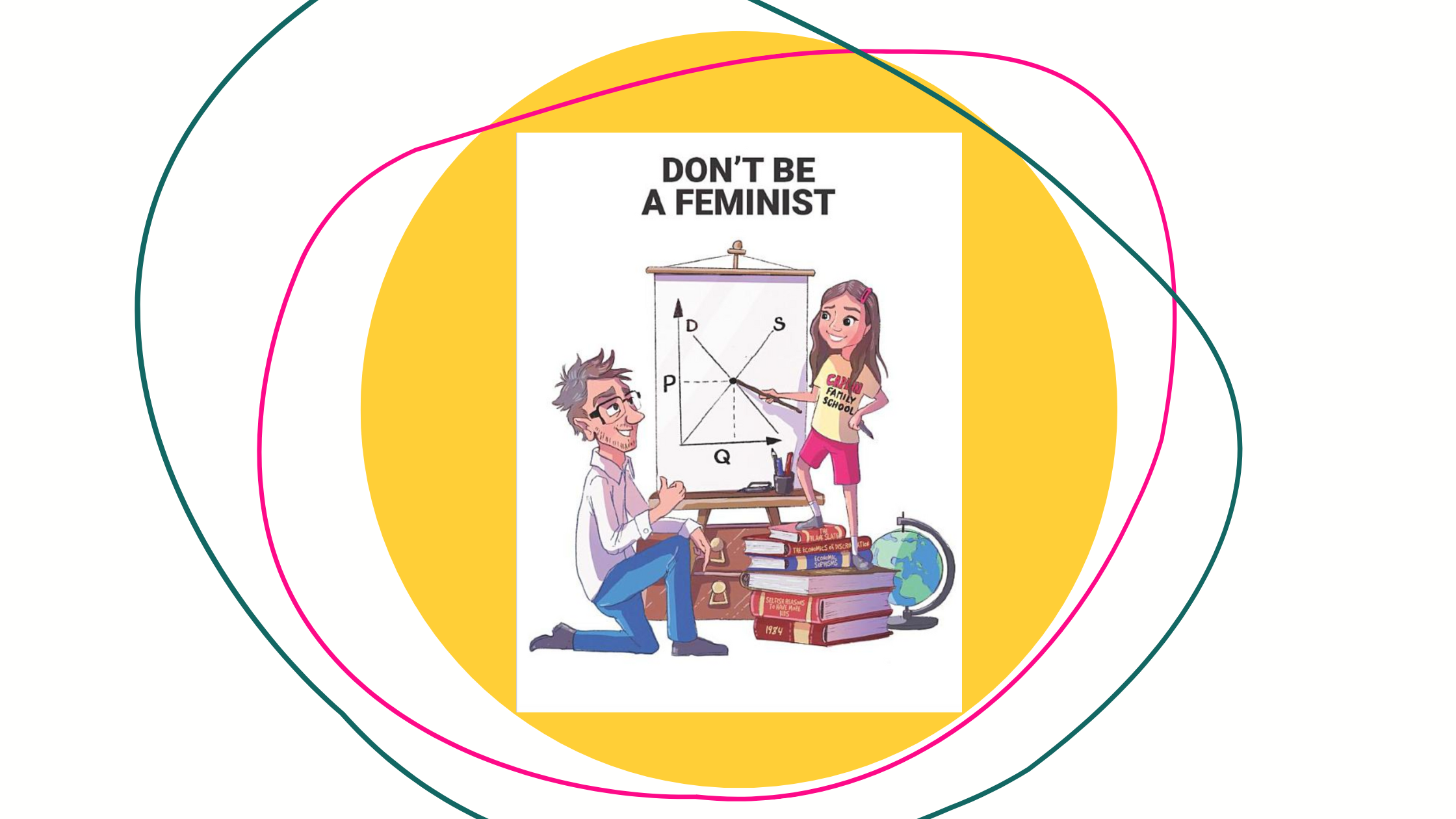Kat and Liz Talk About… Capitalism & Economic Liberty
A lot of people believe that capitalism is bad for women and incompatible with feminism. We’re here to talk about why they’re wrong.
Economic liberty is and always has been central to women’s advancement and a crucial part of the push for sex and gender equality. Patriarchy has historically been about keeping women out of markets, forcing them to rely on men for their basic needs, and even treating them as legally non-persons or possessions. Many of the wins for feminism have involved women both gaining access to markets and then using that access to push for further equality and acknowledgement of their individual and civil rights. In this episode, we explain what, exactly, free market capitalism IS (and isn’t) and why it has been—and continues to be—vital to women’s rights.
Join the conversation on social with #KatAndLiz, and stay tuned for more episodes soon! #FeministsforLiberty
Transcript:
Kat: I love capitalism.
Liz: Wait, but you’re a feminist, right?
Kat: Definitely.
Liz:vI thought feminist hated capitalism?
Kat: Well, that’s what the people on Twitter told me.
Liz: Me too…
Kat: Yeah, but no. There are many different schools of feminism and some of them definitely do hate capitalism, but I’m a libertarian feminist, which means I’m just as much of a libertarian as I am a feminist and, well, I love capitalism. Markets, generally speaking, are a good thing. and women’s increased access to markets and capitalism has been a huge contributing factor to the growth of women’s rights.
Liz: Libertarian feminists – like me and Kat — think that gender equality is tied not just to political and cultural liberty, but to economic Liberty, too. Broadly speaking, economic liberty means the right of people to barter and make a living and enter into contracts and engage in commerce without undue interference from the state and without having to ask someone in government for a permission slip every time.
In particular, economic liberty takes a lot of forms. It can mean the right to go into whatever profession you choose without having one assigned to you by the state. It can mean the right to open a business without having to have some politically connected friends to approve it. It can mean the right to work in a hair salon or babysit kids, or teach yoga classes without having to jump through a bunch of bureaucratic hoops. It can mean the right to accept money for sexual performance or activity without getting thrown in jail. And so on.
Kat: And it can be even more basic than that too. Until not that long ago— like shamefully, not that long ago—women in the U S couldn’t own their own property or open financial accounts on their own. They were outright banned from holding certain jobs or working in certain industries. And if they were married, they couldn’t sign contracts without their husband’s approval and all of their belongings and assets became his property. Even once more women started entering the workforce, they were subject to special rules that didn’t apply to men, limiting the hours they could work, the kinds of labor they could do, how much money they could make, and all sorts of things like that.
It’s ironic because a lot of these inequities get blamed on capitalism, but it was actually government mandates—pushed by conservative and progressive activists alike—that kept women from achieving equal economic liberty.
Liz: When we look at history, it’s pretty easy to understand why economic liberty beat the alternatives for women. Obviously, it’s a good thing that women today can own their own property and sign contracts without a man’s approval and choose work based on their interests and talents rather than their sex and so on. It’s also not that hard for most people to see how granting economic liberty to women and allowing them to participate fully in the American economy was quite good for women’s advancement and equality in history. Women who could own their own property or work outside the home could actually keep the product of their labor—money—and weren’t stuck being dependent on men just have a roof over their heads, or to be able to eat. If they were widowed, they didn’t have to worry about finding a new husband STAT or else being destitute. If their fathers or husbands were abusive, they could actually leave.
Kat: And of course, it gave women more power in relationships more generally too. See, back in the day, even if a woman’s partner wasn’t outright abusive, he still held most of the power and control in a heterosexual relationship because men were the only ones bringing in the money. Men knew that their girlfriends’ or wives’ options were limited to basically non-existent without them, not just because of social stigma or cultural mores, but because these women quite literally had no other means to earn a living. For even the nicest of men, that can really warp the incentives and balance of power within a relationship. So women being able to work and gaining access to other means of economic freedom really opened up a world of possibilities for them, where they could say, ‘Hey, let me make some of the family decisions along with you,’ or ‘you can’t talk to me like that, or treat me like that.’ Or ‘no, I don’t have to have sex with you whenever you want to.’
Liz: And it wasn’t just economic freedom that enabled all of this, of course. Women actually gaining legal rights to their children and liberalized divorce laws, the birth control pill, legal abortion…. all of this played a role. But economic liberty for women was arguably the most crucial factor. For the first time, women could demand better treatment from their husbands and the idea that they could leave if they didn’t get it was not just an empty threat. Suffice to say, a lot of men were not thrilled about this….
Kat: Which is something of an overlooked factor when we talk about the resentment of working women. We focus a lot on how women working threaten men in the workplace, who now had to compete with women for their jobs and for promotions and raises. But women gaining economic equality also threatened men’s supremacy within families and personal relationships, because women could be equal there too.
Liz: I bet at this point, some people are thinking like, okay, sure. Economic liberty was good for women —is good for women—but what does this have to do with capitalism? The answer is: everything. It has everything to do with capitalism. But people might not realize it because a lot of people today have build up capitalism to mean only the bad parts of economic liberty.
Liz: So capitalism gets a really bad rap in the 21st century, and especially among younger people who weren’t really alive, or at least weren’t really cognizant, during socialism’s 20th century heyday.
Kat: I’ve been thinking back to this party that I was at a few years ago when—like the cool kid that I am—I started to talk about how much I love markets and capitalism. And this guy is staring at me totally dumbfounded, and he says, after a little bit, “wait, you’re serious?” He thought I had to have been joking, because then he was like, “wow, I’ve actually never heard anyone say anything like that before and not mean it to be sarcastic.” And I think that’s because a lot of people don’t actually know what capitalism is. Their entire lives, they’ve heard people praising capitalism for policies that, well, aren’t actually that free market — that maybe are “pro-business,” but definitely aren’t pro-market. And when they hear capitalism, that’s what they think of.
Liz: Right, and they also look at things like mutual aid, a strong social safety net, or various facets of European social democracies—like generous parental leave policies, robust unemployment benefits, et cetera—and they think that these things are either incompatible with capitalism, or maybe even that this is what socialism looks like. And that’s also incorrect. I mean, I’m not saying that all of these things individually are necessarily capitalistic either; some of them, like government benefits, clearly aren’t stemming from free markets. And some of them can go either way, depending on whether they were voluntarily provided by private actors or it’s mandated by the state that private actors provide them.
Kat: And things like mutual aid have always been part of both libertarianism and anarcho-capitalism.
Liz: Totally. My point is that even within these social democratic countries where the state plays a bigger role in regulating economic activity, or government provides more social welfare benefits, these are still market driven, societies, capitalistic societies. Some of them have less free markets than others, but we’re still largely talking about wealth and jobs being created by private actors and people being able to choose—at least to some degree—their own roles within this system. We’re not being assigned to jobs by the state. The state doesn’t control all the means of production. This isn’t socialism, it’s capitalism with a generous social safety net.
Kat: So what is capitalism, then?
Liz: That’s a good question, and a big one…. Why don’t you start?
Kat: Okay. So let’s start with what capitalism is not. It’s not criminalized sex work or agricultural subsidies. It’s not tax dollars bribing companies to headquarter in a certain city. It’s not government approved occupational licensing boards consisting of people already in that industry getting to set the rules for new entrants. It’s not cronyism, it’s not corporatism, and it’s not laws and regulations that benefit big business interests with pockets deep enough to hire suites full of lobbyists at the expense of the little guy.
Liz: Can you define those things for people who might not be familiar, corporatism and cronyism?
Kat: Yeah, that’s probably a good idea. So while free market capitalism is a social and economic system which recognizes individual rights — including the right to own property; most importantly, the right to own one’s own self; and to a lesser extent, the products of one’s labor — cronyism and corporatism are these twisted dystopian, degradation of that idea. Cronyism refers to a system in which those who have access to political power — say, by making large donations to policymakers, or by being able to hire lobbyists — get to help influence laws that give them an advantage over their less privileged competitors. Meanwhile, corporatism collectivizes individuals into three separate entities: labor, business, and government — that, again, collude together to establish laws, regulations, and economic policies that are designed to give them an advantage and make it nearly impossible for anyone else to win the game. Both corporatism and cronyism use government to attack the individual, while free market capitalism allows the individual to make whatever voluntary and consensual agreements that they would prefer.
Liz: A lot of times, it’s these very things — corporatism, cronyism, etc.—that cause a lot of the damage that people think of as coming from capitalism per se… which is what’s so frustrating, because people will look at government intervention in markets and be like, ‘Oh, this is why we need more government intervention in markets. This is why capitalism is bad.’ But … yeah. Capitalism is not just big corporations and big business. It’s a person starting a small bakery in their home town. It’s a person taking a passion project and turning it into a way to make a living. It’s independent Etsy sellers, it’s freelance writers and artists. It’s small tech startups that solve social problems while earning their creators income. It’s anyone exchanging their product, ideas, entrepreneurship, or labor for pay.
Liz: We should probably point out that not all libertarians are as gung-ho about capitalism as we are.
Kat: Right — there are also left libertarians who, while still generally libertarian, are opposed to capitalism and the private ownership of the means of production. And while people sometimes or often confuse us with left libertarians — because a lot of people confuse left and right on the political compass, which is an economic indicator, with left and right in American politics, which is an indicator of different, largely party based ideological positions based on policy or rather tied to policy— so when they hear that we support things like feminism and immigration and ending the drug war, they think we’re left libertarian.
Liz: But, we’re not. Those are just mainstream libertarian positions, and we are just libertarians.
Kat: And like most libertarians, I really love capitalism. Like I really, really love it. Markets—yay!
Liz: And unlike a lot of feminists, as libertarian feminists we believe that capitalism has been responsible for freeing people from centuries of oppression, including gendered oppression, and that free markets actually empower women. And this didn’t stop at some point in history. It continues still today.
Kat: We’ve talked a lot about how patriarchy has historically been about keeping women out of markets, forcing them to rely on men for their basic needs and even treating women as legally non persons or possessions. And a lot of the wins for feminism have involved women gaining access to markets and then using that access to push for further equality and acknowledgement of their individual and civil rights. Now let’s talk about what’s happening now.
Liz: I think the basics really aren’t that different. Women benefit — like, not just financially, but in ways that reverberate into all facets of their lives — from having the freedom to work, to choose their own professions, to start businesses, etc., without too much state interference. Women still derive power in personal relationships and society more broadly from these rights. And even if they don’t use them — you know, like even if a woman is staying home and raising kids and not participating directly in the market economy for awhile — they benefit from that possibility being out there.
But it also comes down to who the gatekeepers are, who has the power, which is oftentimes still largely men. And the more roadblocks you put up for people pursuing economic liberty, the more that you require them to get permissions and privileges from the state before they can act, the more likely they’re going to be to be facing sexism and patriarchal attitudes as an obstacle.
Kat: As a result of this, a lot of really well-meaning people — people who truly do believe in women’s equality and empowerment and want to right the wrongs that they see as being caused by capitalism — support the kinds of market regulations and interventions and policies that tend to backfire and make it much harder for women and gender minorities to succeed.
Liz: We’ll be talking about some of these policies in a lot more depth — and why people support them and why they actually end up often failing and backfiring and having unintended consequences for the people that they are supposed to help — in future episodes of Kat & Liz Talk About…
Kat: But for now, please like this video, subscribe to our YouTube channel, follow us on social media and share this with your friends
Liz: And tell us in the comments what you think and what you would like to hear us talk about in future episodes.
Kat: So until next time, bye.
Liz: Bye!


